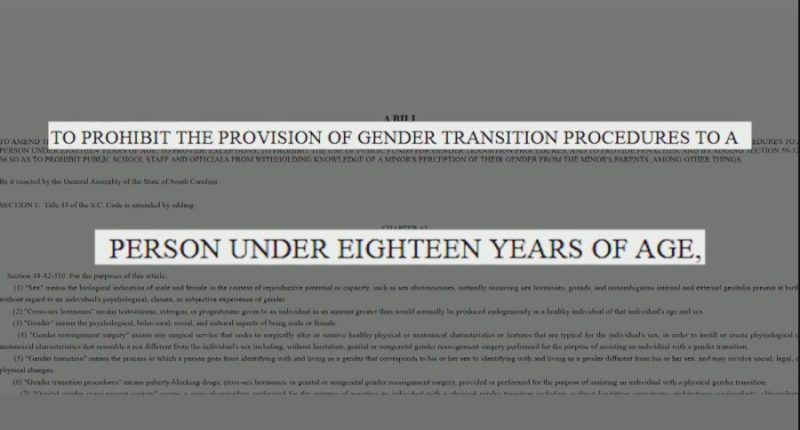Share this @internewscast.com

BEAUFORT, S.C. () – A family had to relocate from South Carolina to ensure their child could access gender affirming care, after it became illegal in the state the previous year.
Recently, the United States Supreme Court has upheld a similar ban in a different state, reinforcing the potential for laws like South Carolina’s to persist.
“This is about their identity; they simply wish to live authentically and be accepted for who they are. They want their internal identity to match their external appearance,” said Leslie, the mother of a transgender child who lost access to treatment in South Carolina, last year.
first spoke with Leslie in February of 2024 before South Carolina Governor Henry McMaster put pen to paper on H4624, the bill that made it illegal for anyone under the age of 18 to receive gender affirming care
At the time, she said her teenage transgender daughter was receiving puberty blockers.
Leslie and her family were still living in South Carolina, waiting to see if the then-bill would be signed into law.
“There’s just so much fear right now,” she said at the time.
When caught up with the mom of three Tuesday, she said it didn’t take long for them to get their answer.
“When they passed the bill in South Carolina, the next day we were released from our doctors. Literally the next day, no more gender affirming care. So, we didn’t know what to do,” she said.
That’s when her family decided there was only one option.
“We came up north to a state that’s protecting of trans kids,” Leslie said.
Since then, she said she’s seen a noticeable change.
“She’s just so much happier,” Leslie said. “I have no regrets.”
asked Leslie what her family would have done if they hadn’t been able to leave the state.
“She’s told me that she wouldn’t be here,” she said of her daughter. “So, it really is a life-or-death thing. I know people think oh they’re exaggerating. It’s really not.”
However, about a week ago, the Supreme Court ruled that a Tennessee state law banning gender affirming care will stay in place, leaving many to wonder how other states will be affected.
“We’re in a safe place now, but so many aren’t,” she said. “These executive orders that are being passed down saying trans people aren’t real and that you know you’re hurting kids by helping them, it makes no sense to me. But it puts our healthcare in danger. Right now, where we are, it’s in danger now.”
There are 26 states, including Georgia and South Carolina that have bans on gender affirming care for minors, according to the Human Rights Campaign.
Many state lawmakers who support the bans argue the laws are in place to protect children that are too young to make consequential choices about their health.














